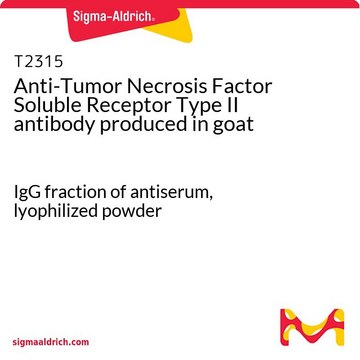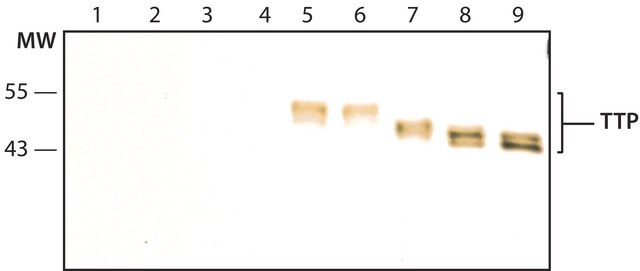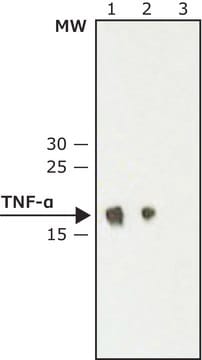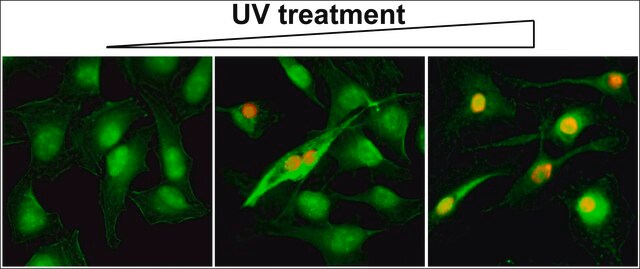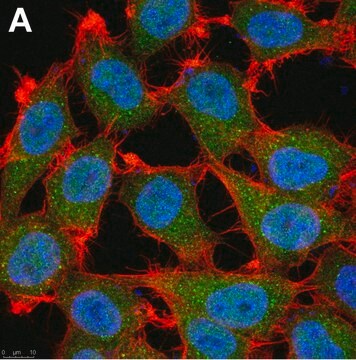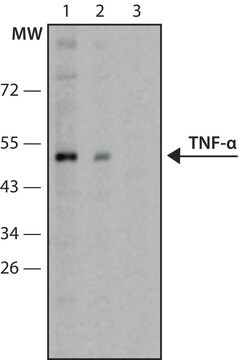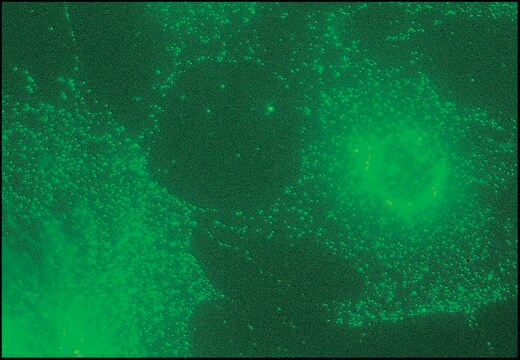T1815
Monoclonal Anti-Tumor Necrosis Factor Receptor II antibody produced in mouse
clone 22221, purified immunoglobulin, lyophilized powder
Sinonimo/i:
Anti-TNFRSF1B
About This Item
Prodotti consigliati
Origine biologica
mouse
Livello qualitativo
Coniugato
unconjugated
Forma dell’anticorpo
purified immunoglobulin
Tipo di anticorpo
primary antibodies
Clone
22221, monoclonal
Forma fisica
lyophilized powder
Reattività contro le specie
human
tecniche
immunocytochemistry: 8-25 μg/mL using immersion fixed human peripheral blood lymphocytes
microarray: suitable
neutralization: suitable
Isotipo
IgG2a
N° accesso UniProt
Temperatura di conservazione
−20°C
modifica post-traduzionali bersaglio
unmodified
Informazioni sul gene
human ... TNF(7124)
Descrizione generale
Specificità
Immunogeno
Applicazioni
Stato fisico
Nota sulla preparazione
Esclusione di responsabilità
Non trovi il prodotto giusto?
Prova il nostro Motore di ricerca dei prodotti.
Codice della classe di stoccaggio
12 - Non Combustible Liquids
Classe di pericolosità dell'acqua (WGK)
WGK 1
Punto d’infiammabilità (°F)
Not applicable
Punto d’infiammabilità (°C)
Not applicable
Certificati d'analisi (COA)
Cerca il Certificati d'analisi (COA) digitando il numero di lotto/batch corrispondente. I numeri di lotto o di batch sono stampati sull'etichetta dei prodotti dopo la parola ‘Lotto’ o ‘Batch’.
Possiedi già questo prodotto?
I documenti relativi ai prodotti acquistati recentemente sono disponibili nell’Archivio dei documenti.
Il team dei nostri ricercatori vanta grande esperienza in tutte le aree della ricerca quali Life Science, scienza dei materiali, sintesi chimica, cromatografia, discipline analitiche, ecc..
Contatta l'Assistenza Tecnica.